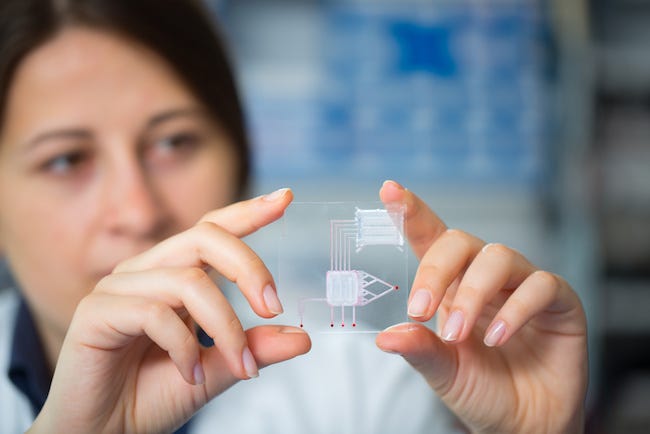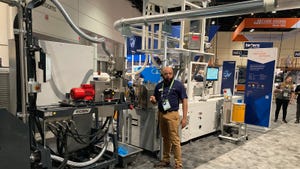Fact checking ‘60 Minutes’ report on Boston Scientific’s transvaginal mesh implants
To make its case against Boston Scientific, '60 Minutes' went so far as to make a blanket statement about how polypropylene is inappropriate to use in any type of implantable medical device. Wrong!

 A recent 60 Minutes report asserted that Boston Scientific (Marlborough, MA) has been purchasing counterfeit polypropylene from a Chinese company called Emai to manufacture its line of implantable gynecologic (or transvaginal) mesh devices, including those used for pelvic floor repair and vaginal sling procedures. Immediately after airing on television, other media outlets jumped at the opportunity to scrutinize Boston Scientific and revive fears about the risks of transvaginal mesh devices.
A recent 60 Minutes report asserted that Boston Scientific (Marlborough, MA) has been purchasing counterfeit polypropylene from a Chinese company called Emai to manufacture its line of implantable gynecologic (or transvaginal) mesh devices, including those used for pelvic floor repair and vaginal sling procedures. Immediately after airing on television, other media outlets jumped at the opportunity to scrutinize Boston Scientific and revive fears about the risks of transvaginal mesh devices.
However, none of this is news. Debate about the safety of transvaginal mesh devices is part of a broader scandal that has been ongoing for years. Since 2012, manufacturers of these devices, such as Johnson & Johnson and C. R. Bard (now part of Becton Dickinson), have been the defendants of class-action lawsuits by women suffering from complications associated with their implantation, independent of how the materials were sourced. And back in January 2016, PlasticsToday reported on a class action lawsuit brought against Boston Scientific for the alleged use of "counterfeit resin" from a Chinese supplier to make the vaginal meshes.
To make its case against Boston Scientific, 60 Minutes went so far as to make a blanket statement about how polypropylene is inappropriate to use in any type of implantable medical device. Notably, a plastics engineer was quoted to have said, “I can’t, in my wildest imagination, imagine anybody that’s knowledgeable in the science of plastics ever deciding that it was appropriate to use polypropylene in the human body.”
But is any of this true?
The fact of the matter is that polypropylene is commonly used to manufacture a number of medical devices. For example, most hernia meshes are made of polypropylene, and these have been safely implanted in millions of patients worldwide. Tendon repairs, wound closures and mitral heart valve placements also rely on polypropylene sutures. According to Decision Resources Group, an estimated 95,000 of the transvaginal meshes in question are implanted annually in the U.S. during pelvic floor repair procedures.
Are you sourcing medical-grade plastics or plastics processors with medtech expertise? Then, you should make it a point to attend the co-located PLASTEC East and Medical Design & Manufacturing (MD&M) East event, part of the largest advanced design and manufacturing trade show and conference on the East Coast. The event comes to New York from June 12 to 14, 2018. Register now! |
In Boston Scientific’s case, the FDA approved the use of Marlex—a brand of polypropylene—in its mesh products, and has always allowed a manufacturer the right to change its supplier after gaining device approval. In January 2016, after the FDA became aware of potentially counterfeit polypropylene resin used in Boston Scientific’s products, it conducted a review of the new material, which revealed variability on several parameters, but was ultimately deemed to be safe and effective. Recent debate about transvaginal mesh safety also has prompted the release of an awareness statement by the president of the American Urogynecologic Society to reiterate that transvaginal mesh is a viable surgical option for carefully selected patients.
So what can we take away from all this, and who is at fault?
Focusing on the known facts, a few conclusions can be drawn:
Polypropylene is safe to use in certain medical implants. There is evidence suggesting it is suitable in the peritoneum (e.g., hernia repair), but unsuitable in the vagina. Perhaps there is something to be said about the relatively high readmission rates of transvaginal mesh procedures.
The charge against Boston Scientific is for its disputed sourcing practices—the company has denied any wrongdoing—whereas all manufacturers of transvaginal meshes have been sued for associated complications.
As a result, the FDA should have a duty to continue reviewing and requesting long-term clinical data to better understand the appropriateness of transvaginal mesh as an approved treatment and device.
Article authors Sanketh Kamath and Jason R. Lau are with the Decision Resources Group (Toronto, ON, Canada), a global information and technology services company that provides proprietary data and solutions to the healthcare industry.
About the Author(s)
You May Also Like

